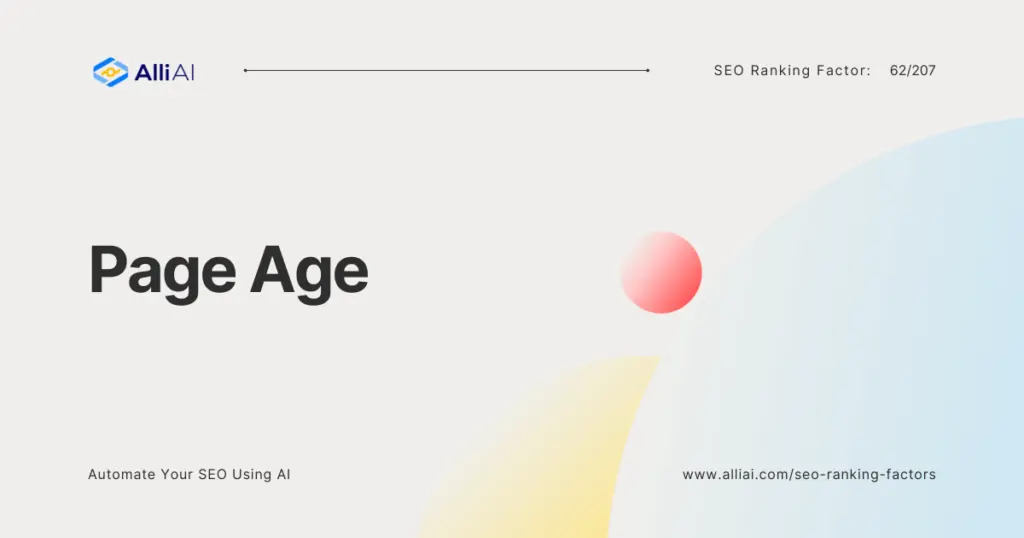What is Page Age?
Page age refers to the amount of time that has passed since a web page was first published or significantly updated. Imagine you’re a librarian, and two people hand you books on the same topic. One book was published ten years ago, and the other was published last month. Instinctively, you’d consider the newer one more likely to contain current information, though the older one may also have valuable insights that have stood the test of time. That’s how search engines view page age, but with a nuanced appreciation for both newness and maturity, depending on the context of the search query.
Why is Page Age Important in SEO?
Page age is a critical factor in search engine optimization (SEO) because it influences how search engines assess the relevance and reliability of content. Search engines aim to provide users with the most helpful and current information. Consequently, newer pages might be favored for news-related or trending topics, where freshness is key. Conversely, older pages that have consistently attracted visitors and backlinks might be deemed more authoritative on evergreen topics.
How Page Age Affects SEO?
1. Trust and Credibility: Older pages that have been around for a while can earn search engines’ trust, assuming they offer valuable content and have accumulated backlinks and positive user engagement. This is akin to a well-aged wine becoming more valued.
2. Content Freshness: For topics that require up-to-date information, newer pages might be given preference. This doesn’t diminish the value of older pages but highlights the importance of updating them to stay relevant.
3. Link Building: Older pages usually have more time to accumulate backlinks, which are crucial for SEO. A higher number of quality backlinks signals to search engines that the content is valuable, thus improving its ranking potential.
– According to a study by Ahrefs, the average age of pages ranking in the top 10 Google search results is over 2 years old, and those that rank in position #1 are almost 3 years old on average.
– Another report by Moz highlights that search engines might use page age as a means of distinguishing between high-quality, well-established content and newer, unproven pages.”
FAQ
How does Google determine the age of a webpage?
Google considers several factors to determine the age of a webpage, including the date it was first indexed or discovered by Google, the date of the most recent significant update, and the age of the domain itself.
Does updating a webpage reset its age?
No, updating a webpage doesn’t reset its age in the eyes of search engines. In fact, regular updates can signal to search engines that the content is being maintained and is likely current, which can positively influence rankings.
Is older always better for SEO?
Not necessarily. The impact of page age on SEO depends on the context of the search query and the nature of the information being sought. For evergreen content, age can signal authority. For news or fast-changing topics, freshness may be more critical.
Conclusion
Page age is a nuanced SEO factor that influences how search engines evaluate the relevance, authority, and trustworthiness of web pages. While older pages might be seen as more authoritative, especially if they have a robust backlink profile and consistently good user engagement, newer pages are crucial for topics that require the most current information. Regardless of age, the key to impacting SEO positively is to ensure that content is well-maintained, regularly updated, and continues to provide value to its intended audience. In the dynamic landscape of SEO, understanding the role of page age—and managing it wisely—is essential for anyone looking to optimize their online presence effectively.






